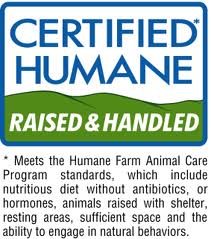 Hello foodies! Welcome to the first issue update of 2011. This year, I plan on spicing things up with original interviews of chefs, musicians, and thought leaders. And when YOU find things on the web that you think belong in my next update, please email me at [email protected]. Here’s what I’ve got for you today…
Hello foodies! Welcome to the first issue update of 2011. This year, I plan on spicing things up with original interviews of chefs, musicians, and thought leaders. And when YOU find things on the web that you think belong in my next update, please email me at [email protected]. Here’s what I’ve got for you today…
- There is talk in the commercial foods sector of creating a standard for “humane” food. It’s likely that food produced following such rules would be more expensive, but consumers might be willing to pay a premium for animal products guaranteed to have been produced humanely, just as they do for organic foods. Would you? (Side note: Shmeat, the Lab-Grown Meat, was featured in Nature News this December. If Shmeat ever hits the shelves in your local supermarket, we might need another new type of certification. What would you call it?)
- In her new book, entitled Kosher Nation, Sue Fishkoff details the rapid expansion of the market for kosher foods in our society. From Kraft to Coca-Cola to Nestle, many U.S. food companies are rebuilding processing plants and changing recipes in hopes of producing officially kosher certified items. The primary reason: more non-Jews are choosing kosher foods, attracted by their promise of high quality and sanitation. (Kosher Coke is, incidentally, crazy delicious.)
- Vegans beware: new research warns that soy products, generally regarded as a healthful protein alternative, can in fact be dangerous. The Cornucopia Institute’s new study on the processing of soy foods found that the industry uses hexane (a petroleum-based solvent which the EPA acknowledges as a neurotoxin) to process soy ingredients found even in many “natural” food products. This is the same chemical which killed four workers last year at a Chinese factory manufacturing Apple and Nokia touchscreens. In addition, it looks as though the phytoestrogens in soybeans are associated with breast cancer and Alzheimers. On the plus side: as the research comes out, companies are beginning to take steps to make soy safer, voluntarily changing their processing practices and eliminating hexane from their products.
There’s never a dull month in the world of food and farm policy, so I hope you are interested in learning more or sharing with others. I look forward to keeping you informed in 2011, and please do tell me what you’re seeing, reading and hearing out there.